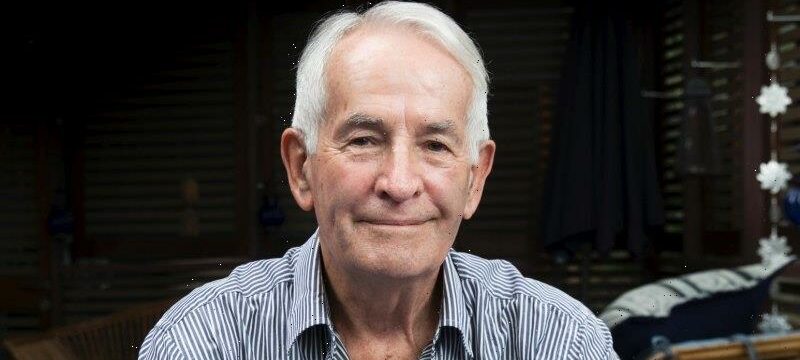Australia’s first anti-corruption commissioner has called for a 12-month deadline on major inquiries by the nation’s new integrity watchdog as part of stronger laws to allow for more public hearings, despite claims it could damage the reputations of politicians and officials.
Ian Temby, KC, said the time limit was the “price to be paid” for changes that would avoid repeating mistakes in the treatment of Victorian Premier Daniel Andrews and former NSW Premier Gladys Berejiklian by state commissions.
Ian Temby was the first Commonwealth Director of Public Prosecutions and the first Commissioner of the NSW ICAC.Credit:Jessica Hromas
“It is unconscionable that people against whom serious allegations are made, whether in the courts or in an anti-corruption commission, should be required to wait for a year or more before they know what the findings are,” he said.
Temby, who led the NSW Independent Commission Against Corruption from 1989 to 1994, put forward the 12-month deadline as part of a proposal to remove a controversial provision that says the federal watchdog would only hold public hearings when in “exceptional circumstances” and the public interest.
Berejiklian appeared before ICAC at a public hearing in October 2020 and admitted to a “close personal relationship” with Daryl Maguire, a former MP under investigation in Operation Keppel, which had commenced months earlier. She resigned on October 1, 2021, after being told she was under investigation, and appeared at another public hearing later that month. The commission is yet to reveal its findings.
Andrews appeared at private hearings by the Victorian Independent Broad-based Anti-Corruption Commission into suspected corrupt land deals and the misuse of public resources but news of the testimony only emerged later, prompting IBAC chief Robert Redlich to criticise “misinformation” about the secrecy.
Gladys Berejiklian resigned a year ago as NSW Premier. Credit:Dominic Lorrimer
Temby said parliament should amend the draft bill for a National Anti-Corruption Commission to remove the “exceptional circumstances” wording so the agency could hold public hearings whenever it believed it was in the public interest.
“I do think that in circumstances where a commission conducts public hearings at which allegations are made against individuals, then it must be incumbent upon the commission to report quickly and promptly,” he said.
“And the only way to achieve that is to impose a requirement as to time and I suggest 12 months is plenty of time.
“I cannot think that it was impossible for the [NSW] commission to bring down a report in the Berejiklian matter within 12 months – that’s not a matter of unique complexity or difficulty.
“So I’m coupling a strong support for public hearings, as a matter of principle and practicality, with a requirement to report within 12 months.”
Attorney-General Mark Dreyfus said the “exceptional circumstances” rule was needed because many hearings had to be held in private for legal reasons or to prevent damage to reputations, while Opposition Leader Peter Dutton has supported this approach.
Those calling for the removal of “exceptional circumstances” in favour of a “public interest” test include former Federal Court judge Michael Barker, former Victorian Court of Appeal judge Stephen Charles, barrister Geoffrey Watson, former NSW Supreme Court judge Anthony Whealy, and former Queensland Court of Appeal judge Margaret White.
Temby said reputational damage was a “not infrequent” consequence of court hearings but that witnesses before an anti-corruption commission who were at risk of adverse findings had greater entitlements including legal representation.
“One of the difficulties with private hearings is that the fact that they’re being held tends to get around,” he said.
“That’s what happened in Melbourne recently, when Robert Redlich, who’s an excellent man, decided that exceptional circumstances did not exist and conducted a hearing in private.
“Word got out that the premier had been a witness. And in those circumstances, rumours swirl around and a great deal of material is provided for the ignorant and the unwashed to spread rumours, often falsely.
“The hearings that Redlich conducted, I think, did harm to the entire process. Nobody could have confidence in what was going on because nobody knew what was happening. And I think it did harm to the reputation of Daniel Andrews.
“That might or might not be rectified by the final report, I don’t know. But it’s best to have this stuff out and then get on with preparing a report and getting it to the parliament.”
The parliamentary inquiry into the NACC has been asked to deliver its report by November 10, setting up weeks of debate over public submissions on ways to amend the bill.
Cut through the noise of federal politics with news, views and expert analysis from Jacqueline Maley. Subscribers can sign up to our weekly Inside Politics newsletter here.
Most Viewed in Politics
From our partners
Source: Read Full Article


